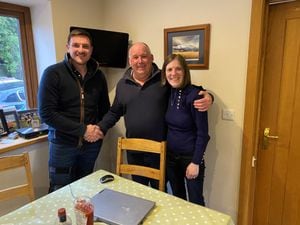Planning pros and cons of power of the people
Whether it’s a new grain store, residential extension or change of use of a traditional barn, the planning process is there to ensure good design and appropriate development in our countryside and public consultation forms a part of that process.

Having a say can make a real difference and is to be encouraged, after all, the ‘power of the people’ could save the local pub from closure or force improvements to a development scheme.
The planning system is essentially an enabling piece of legislation but proposals for change in small communities can be contentious, and objections may only serve to frustrate and delay development rather than prevent it, especially when they stray from planning matters to personal motivators.
I’ve recently been involved in one particular application for a rural worker’s dwelling, which was faced with a barrage of neighbour objection, despite having the support of the local planning authority’s agricultural consultant and planning officer’s recommendation for approval. Due to the level of objection, the decision was taken to the planning committee where it was refused.
This decision was unsurprisingly appealed. Objection continued and the accumulation of submissions caused the inspector to elevate the case to the highest level of appeal; public inquiry! After four days of hearing and giving evidence, cross examinations by each party’s barristers, all we could do was wait for the planning inspector’s decision.
As you might imagine, the whole process had resulted in an inordinate amount of stress and frustration for the applicant, an inability to take their business forward and significant financial cost over the three years from application!
Ultimately, the planning inspector allowed the appeal and not only granted planning permission but full costs to the applicant, finding that the planning committee had been, “heavily influenced by a third party’s observations which had resulted in delaying development which should clearly have been permitted.”
Sadly, having recommended the application for approval, the local planning authority are now having to foot a very costly bill, at a time when resources are stretched and budgets under pressure.
While there is absolutely a place for public consultation within the planning process, to hold any real weight, objections should be based on sound planning matters and fact.
There is a risk that particularly vociferous objections, which may be no more than personal opinion, can and are unfairly disrupting the planning process.
We had faith in the system and were able to secure permission in the end. However not every applicant would have the resources needed to put up a fight.
Melanie Holt is a rural chartered surveyor and planning consultant with Moule & Co.





